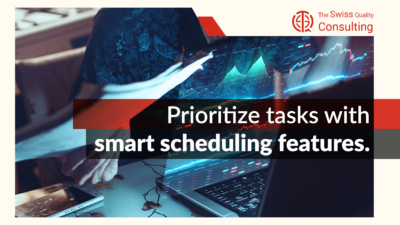Leadership Competence: Navigating Frustration, Leadership, and Competence in the Business Arena
In the realm of leadership, the relationship between frustration and competence is a delicate balance that can significantly impact an organization’s success. The quote, “President Obama and members of his administration constantly express rage and anger over events totally within their control. It’s an odd and unsettling fact of American life that so many Americans seem to think that such expressions of frustration should substitute for actual competence,” prompts a critical examination of how leadership effectiveness is perceived. This article aims to dissect the dynamics of frustration, competence, and leadership within the context of business, offering insights for business executives, mid-level managers, and entrepreneurs.
The Paradox of Frustration and Competence in Leadership
Frustration, that ever-present human companion, doesn’t shy away from the corner offices of even the most seasoned leaders. While acknowledging this emotion is crucial, it’s how we express and manage it that truly defines our leadership mettle. The line between a leader who embraces frustration as a catalyst for positive change and one who allows it to erode their perceived competence is often thinner than perceived.
Imagine two leaders facing the same roadblock: a stalled project. One throws their hands up in exasperation, blaming external factors and radiating negativity. The other, while acknowledging the frustration, channels it into action, convening their team, brainstorming solutions, and exuding a spirit of determined resolve. The contrast is stark. While the former risks losing trust and diminishing their image, the latter harnesses the emotional energy of frustration, fostering collaboration and inspiring their team to overcome the challenge.
The key lies in recognizing that frustration over controllable challenges presents an opportunity. It becomes a signal to roll up your sleeves, delve deeper, and unearth solutions. Leaders who internalize this frustration, bottling it up or lashing out, not only fail to address the root cause but also risk damaging their credibility. Conversely, those who channel it into constructive action demonstrate their problem-solving prowess and inspire their teams with their unwavering commitment.
Remember, frustration isn’t a character flaw; it’s a human response. The true mark of leadership lies not in its absence, but in its transformation. By leveraging frustration as fuel for action, open communication, and a relentless pursuit of improvement, leaders can turn a potential liability into a powerful leadership asset. So, the next time frustration knocks at your door, don’t slam it shut. Instead, invite it in, acknowledge its presence, and use it to propel yourself and your team towards a brighter, more successful future.
Effective change management strategies are crucial in addressing this paradox. Executive coaching services play a pivotal role in guiding leaders to channel frustration into constructive actions. By fostering a mindset that prioritizes competence and strategic decision-making, coaches empower leaders to navigate challenges with resilience and effectiveness.
Communication Strategies for Leadership Competence
Effective communication is a cornerstone of leadership competence. How leaders articulate their frustrations, concerns, and plans can influence their team’s perception of their competency. Business success often hinges on the leader’s ability to communicate a clear vision, inspire confidence, and demonstrate a strategic approach to problem-solving.
Leadership and management skills workshops can be instrumental in honing communication strategies. Emphasizing the importance of transparency, clarity, and strategic thinking, these workshops equip leaders with the tools to express frustration in a way that reinforces their competence rather than undermining it.
Competence in Decision-Making and Project Management
The link between competence and decision-making is particularly evident in project management. Competent leaders approach challenges with a strategic mindset, evaluating risks and making informed decisions. The ability to navigate project complexities and unforeseen obstacles demonstrates genuine competence, fostering a sense of trust and reliability among team members.
Project management best practices emphasize the importance of foresight, adaptability, and risk management. Leaders who integrate these principles into their decision-making processes not only enhance their competence but also contribute to the overall success of the organization.
Cultivating a Culture of Competence in the Workplace
Organizational culture plays a pivotal role in shaping perceptions of leadership competence. A workplace that values continuous learning, innovation, and adaptability fosters an environment where leaders can showcase their competence effectively. This, in turn, contributes to overall business success.
Management consulting insights often highlight the importance of aligning organizational culture with strategic goals. Leaders who prioritize competence in their decision-making set the tone for a culture that values results, accountability, and continuous improvement.
Conclusion: Elevating Leadership Beyond Frustration
While frustration may be a natural part of leadership, it should never serve as a substitute for competence. In the business arena, leaders must prioritize effective change management, communication strategies, decision-making, and a culture of competence. By doing so, they not only navigate challenges more effectively but also inspire confidence and contribute to the long-term success of their organizations.
#LeadershipSkills #ChangeManagement #EffectiveCommunication #ProjectManagement #CompetentLeadership























